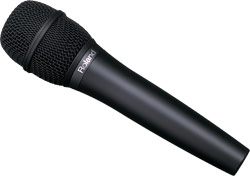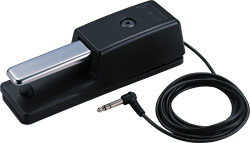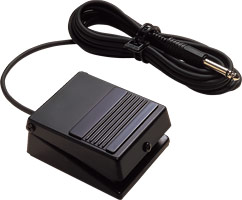- •
- <
- >
About the Keyboard
The PC-80 features a keyboard mechanism derived from Roland’s newest technology. It's specifically designed to offer a wide dynamic range with incredible subtlety. The redesigned keys offer a better response to the player's touch, while also reducing mechanical noise and eliminating vertical shake in the key stroke. The PC-80 allows you to send different key ranges to different MIDI channels, effectively allowing you to split the keyboard among different instruments or layer multiple instruments.
The PC-80 is designed to adapt to anyone’s playing style by offering 12 settings for velocity. It includes four curves, each with the choice of soft, medium, and hard playing style. To further the expressive capabilities of the PC-80, we’ve included both sustain and Expression pedal connections.
Audio Interface
The PC-80 functions much like a soundcard, connected to the computer through USB. It offers incredible audio resolution up to 24-bit/96kHz. The PC-80 offers stable low-latency audio drivers for both PC and Mac, for powerful performance. You can record using the two 1/4" inputs, play out through the RCA outputs, two separate headphone outs, as well as built-in speakers. The PC-80 is equipped with a Bass Enhancer as well as a sub-out for use with 2.1 speaker systems. The PC-80 also includes Direct Monitoring, allowing you to hear audio your recordings with zero latency.
Software Synth
This premium GM2 software synth represents Edirol's finest set of GM2 sounds packed into a powerful, stand-alone application for Windows 2000, Windows XP, and Mac OSX. When open, this synth can show up as a MIDI output device from your MIDI programs, offering you immediate access to incredible instruments, whether you’re using the PC-80 for notation, music education, or for sequencing. The software synth includes a standard MIDI file player and a metronome, 256 different instruments, nine drum sets, multi-timbral playback of up to 18 parts, and 256 note polyphony: two parts, 128-note polyphony for the live playback, and 16 parts, 128-note polyphony for SMF playback.
EDIROL designs its USB devices in accordance with USB specifications and has passed all compatibility tests, which are continuously held and organized by USB Implementers Forum (USB-IF).







